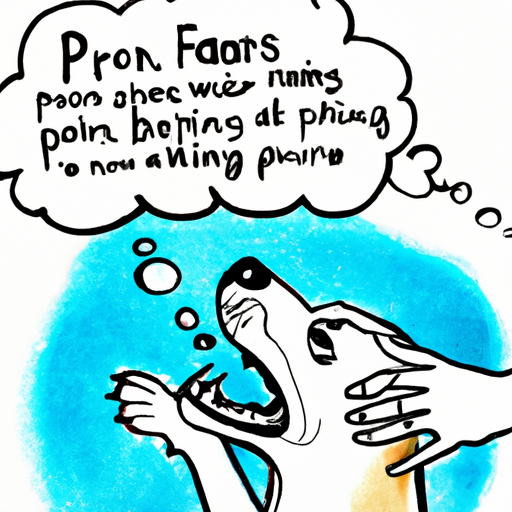As a caregiver, understanding the behavior of your canine companion is crucial. One such behavior that has often been a cause for concern is biting. Why do dogs bite you? This article will delve deep into this topic, shedding light on the reasons behind this seemingly aggressive behavior, and how to manage and prevent it.
Understanding Canine Behavior
Understanding why dogs bite requires a comprehension of canine behavior. Dogs, like humans, have their own way of communicating. Biting is a form of communication, and it’s not always a sign of aggression.
- Playfulness: Puppies and younger dogs often use their mouths to explore their environment and interact with others. This can involve biting.
- Fear or Threat: Dogs may bite when they feel threatened or scared. This is their natural reaction to protect themselves.
- Pain or Discomfort: If a dog is in pain, it might bite anyone who touches the painful area. It’s a reflexive response to protect the part of their body that’s hurting.
- Resource Guarding: Dogs may bite to protect their possessions. This can range from food, toys, or even their favorite spot on the couch.
Recognizing Warning Signs
Recognizing the signs that a dog may bite can prevent potential incidents. Dogs usually give warning signs before they bite:
- Growling or snarling
- Showing teeth
- Stiff body posture
- Ears pinned back
- Tail tucked under body
If you spot these signs, it’s best to give the dog some space until they calm down.
Prevention and Training
Preventing dog bites involves proper training and socialization. Here are some steps to follow:
- Socialization: Expose your dog to a variety of situations, people, and other animals to help them feel more comfortable in different environments. This can lessen their fear and anxiety, reducing the chance of biting.
- Training: Teach your dog basic commands like “sit”, “stay”, and “leave it”. This can give you control in potentially risky situations.
- Avoidance of Risky Situations: If you know certain situations trigger your dog, it’s best to avoid them if possible.
| Prevention Method | Explanation |
|---|---|
| Socialization | Expose dog to various environments |
| Training | Teach basic commands |
| Avoidance | Stay away from triggering situations |
Handling a Dog Bite
Despite your best efforts, dog bites can still happen. Here’s what to do if a dog bites you or someone else:
- Clean the Wound: If the wound is minor, clean it with warm water and soap. Apply an antibiotic ointment and cover it with a clean bandage.
- Seek Medical Help: For deep wounds, it’s crucial to seek medical help immediately. Dog bites can lead to serious infections if not treated promptly.
- Report the Incident: If you’ve been bitten by someone else’s dog, report the incident to local authorities. This can help prevent future incidents.
Frequently Asked Questions (FAQs)
1. Why does my dog bite me and not others?
Your dog may feel more comfortable expressing their feelings with you, whether it’s playfulness or discomfort. It’s important to address this behavior through training or consultation with a veterinarian or a professional dog trainer.
2. Is biting a sign of aggression in dogs?
Not always. While biting can be a sign of aggression, it can also be a form of communication. Dogs might bite out of fear, playfulness, or discomfort.
3. How can I stop my dog from biting?
Socialization, training, and avoiding triggering situations can help prevent your dog from biting. If these methods aren’t working, consider seeking professional help.
In conclusion, dog bites are a form of communication and can stem from various reasons such as playfulness, fear, discomfort, or resource guarding. Recognizing warning signs, providing appropriate training, and socializing your dog can help reduce and prevent such incidents.



